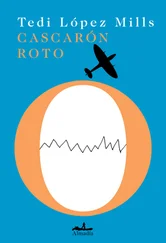Mark Mills - Amagansett
Здесь есть возможность читать онлайн «Mark Mills - Amagansett» весь текст электронной книги совершенно бесплатно (целиком полную версию без сокращений). В некоторых случаях можно слушать аудио, скачать через торрент в формате fb2 и присутствует краткое содержание. Жанр: Старинная литература, на русском языке. Описание произведения, (предисловие) а так же отзывы посетителей доступны на портале библиотеки ЛибКат.
- Название:Amagansett
- Автор:
- Жанр:
- Год:неизвестен
- ISBN:нет данных
- Рейтинг книги:5 / 5. Голосов: 1
-
Избранное:Добавить в избранное
- Отзывы:
-
Ваша оценка:
- 100
- 1
- 2
- 3
- 4
- 5
Amagansett: краткое содержание, описание и аннотация
Предлагаем к чтению аннотацию, описание, краткое содержание или предисловие (зависит от того, что написал сам автор книги «Amagansett»). Если вы не нашли необходимую информацию о книге — напишите в комментариях, мы постараемся отыскать её.
Amagansett — читать онлайн бесплатно полную книгу (весь текст) целиком
Ниже представлен текст книги, разбитый по страницам. Система сохранения места последней прочитанной страницы, позволяет с удобством читать онлайн бесплатно книгу «Amagansett», без необходимости каждый раз заново искать на чём Вы остановились. Поставьте закладку, и сможете в любой момент перейти на страницу, на которой закончили чтение.
Интервал:
Закладка:
Fisher had given his word that the burial ground wouldn’t be disturbed by the construction work. But that brisk summer’s day, with the clouds whipping by overhead and the rush of the wind drowning out the sound of the earthmovers, it became clear that Sam’s advice, and that of the other Montauketts who knew the precise compass of the sacred site, had been ignored.
There were scraps of rough-woven cloth, dank and dirty, in the mounds of earth. And there were bones.
‘That’s terrible,’ said Lillian.
Conrad shrugged. ‘Maybe not.’ He explained how two months later, a hurricane had ripped through Miami Beach, devastating Carl Fisher’s greatest creation; how later that year the headquarters of Fisher’s Montauk Beach Development Company had burned to the ground, blueprints and all; and how the stock market crash in 1929 had then killed off Fisher’s Montauk dream for good.
‘He died poor and unhappy,’ said Conrad. ‘But Sam still said a prayer for his soul when he heard.’
They were heading back to the dock now, the Demeter gliding across the surface.
‘You think there’s a connection?’ asked Lillian.
‘I don’t know. I like to think so. If Fisher hadn’t desecrated the ground, if he’d pulled it off, everything out here would have changed for the worse.’
‘Yes,’ said Lillian, smiling, ‘it’s a pleasing irony.’
Back at the dock, they unloaded the fluke into crates then he ran her back to her house on Further Lane.
‘When do I get my cut?’ she asked as they pulled up.
‘Couple of days, week at the most. I’ll ship them down to Fulton tomorrow.’
‘You know,’ she said, ‘it’ll be the first money I’ve ever earned.’ She glanced across at him. ‘I’m not proud of it.’
‘No, I can see.’
‘But I do think it calls for a celebration.’
They took their drinks to the end of the garden and they sat on the bluff overlooking the ocean.
‘This is my favorite spot in the world,’ she said.
They never finished the drinks.
A little while later, she placed her hand on his, the charge of her touch shorting out all other thoughts, smiling at him with a mixture of tenderness and certainty that left no room for doubt or maneuver. Not that he was considering either. He leaned across to meet her lips, and she drew him down on to the ground.
Later, when it was over and they were lying entwined in the grass, she pressed her face to his neck and inhaled.
‘You have a very particular smell.’
‘It goes with the job.’
‘I like it,’ she said. ‘Eau de fish.’
Conrad laughed.
Lillian’s fingers sought out the long ridge of scar tissue in his side, tracing its smooth contours.
Maybe she felt him tense under her touch, or maybe she just knew him well enough already, but she didn’t give voice to her curiosity.
The Montauk fishing fleet was back in, and Fort Pond Bay was a hive of activity. Sloops and draggers were making for the docks where others were already packing out, unloading their catches, separating, boxing and icing the fish, hammering the tags of their favored dealers to the sides of the cedar crates.
Conrad ranged alongside Duryea’s Dock and made fast. He checked that the Demeter was good there till the morning, pushed his way through the crowd and set off along the great scythe of beach.
Waves lapped at the pebbly sand. Out on the water two boys were floundering away in a little craft cobbled together from fish boxes and corrugated iron. The caulking at the seams had failed and they were shipping water fast, bailing furiously with their hands. As the gunwales dipped below the waves, they saluted, going down with their stricken vessel. Their shrieks of laughter carried clear across the water as they kicked for the shore.
Just back from the beach some young kids were playing baseball on the same sandy lot where Conrad had once swung a bat with their fathers. The crude baseball diamond hadn’t changed, but Trail’s End restaurant and the Post Office which had once sandwiched the lot were gone, moved away on skids at the outbreak of the war.
The Navy had decided that the broad, clean sweep of Fort Pond Bay offered the perfect location for a torpedo-testing range, and had duly slapped a compulsory relocation order on every family in the fishing village. Some had rolled their houses down to vacant lots on Edgemere Road and Flamingo Avenue. Others had simply abandoned them, taking the $300 compensation on offer and buying or building anew.
The Navy succeeded where the hurricane of ‘38 had failed, delivering a blow from which the fishing village looked unlikely ever to recover. What buildings remained trailed around the shore like a broken line of walking wounded returning from battle, and only a handful of people had returned to the homes they’d been forced to leave.
Hendrik Morgan was one of them.
He was sitting out front of the two-room shack his father had first built, knitting a funnel for a lobster pot. More pots were stacked around him. Straggly shrubs demarcated the small patch of shingle that was the front garden, and a weather-beaten vine clung precariously to the side of the building. These few plaintive stabs at adornment were undermined by the rancid stench of bait fish setting in a barrel nearby.
‘ Goddag. ’
Hendrik looked up and smiled. ‘ Hej. ’
‘How’s it going, Hendrik?’
‘Good,’ he said, getting to his feet. ‘Good.’
He took Conrad’s hand warmly, clamping his other hand on top. He stood at least as tall, his lank blond hair flopping in front of his blue eyes.
‘You got time for a cold one?’ asked Hendrik.
‘Sure.’
Hendrik headed inside, returning a few moments later with another chair and a couple of bottles of beer. He popped the tops and they settled down in the sunshine, looking out over the
bay.
‘How’s the lobstering?’ asked Conrad.
‘Easier now I got me a new boat.’
‘Yeah?’
‘The Alice T, a thirty-foot western-rig out of Stonington. Got a fair few miles on her keel, and trims a little heavy by the stern when loaded, but she’s a real beauty.’
‘How many pots you fishing?’
‘Hundred and fifty, more on the way.’ He nodded at the oak laths and other lobster-pot stock piled up nearby. ‘Two hundred and fifty should do it.’
‘And some.’
‘Yeah, first year back’s been good to me.’
‘You deserve it.’
Hendrik smiled. ‘Wish it worked like that, but we both know it don’t.’
Hendrik’s family had been plagued by a run of mud-luck for well over a decade. The Depression had been tough on everyone, but it had coincided with a sharp drop-off in the lobsters, obliging Hendrik and his father to abandon their operation for other work, chopping wood for the WPA and filling ruts for the Highway Department—anything to scrape together a few precious dollars a day. This was how Conrad and Hendrik had first got to meet, odd-jobbing in East Hampton one winter, thrown together in the gardens of city people, spreading manure on the flower borders, the heat rising up through their boots. Left to his own devices, Hendrik would take every opportunity to snoop around the summer homes. He claimed he never touched anything, though how he came across the selection of riding crops tucked beneath the bed of a well-known movie actress remained to be answered; and there was always a faint but distinct whiff of mothballs about him whenever he returned from his prowls.
From shoveling shit in East Hampton they had moved to the woods north of Amagansett where they felled oaks for a couple of months, reducing the trees to cords of wood. Then it was on to Promised Land where they tarred the roof joins on the fish-factory buildings at Smith Meal, daubing obscene doodles—only visible from the air, they calculated—to relieve the monotony. When the shimmering pods of menhaden reappeared in late spring, they descended from their lofty perch and lugged hundredweight sacks of fish meal, still blisteringly hot from the driers, out to the box cars on the railroad siding. The only white men in the human chain of seasonal southern workers, they soon picked up the songs and learned to take the ribbing in good humor.
Читать дальшеИнтервал:
Закладка:
Похожие книги на «Amagansett»
Представляем Вашему вниманию похожие книги на «Amagansett» списком для выбора. Мы отобрали схожую по названию и смыслу литературу в надежде предоставить читателям больше вариантов отыскать новые, интересные, ещё непрочитанные произведения.
Обсуждение, отзывы о книге «Amagansett» и просто собственные мнения читателей. Оставьте ваши комментарии, напишите, что Вы думаете о произведении, его смысле или главных героях. Укажите что конкретно понравилось, а что нет, и почему Вы так считаете.











